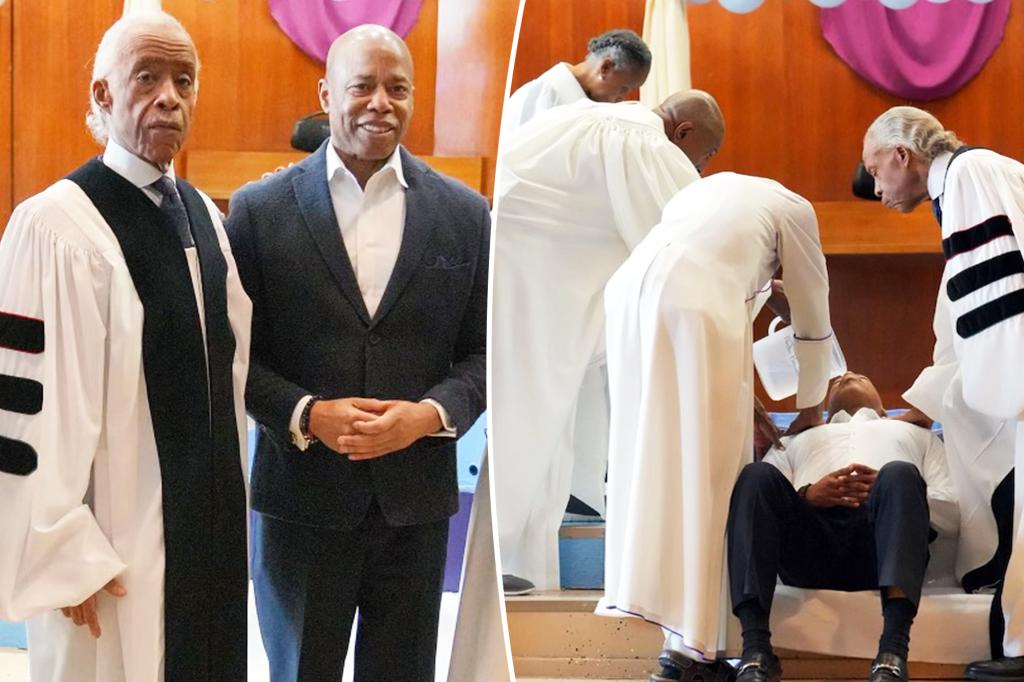New York City Mayor Eric Adams began Easter weekend with a jailhouse baptism conducted by Rev. Al Sharpton. The mayor joined 11 Rikers Island detainees for the ceremony, where he was rebaptized by Sharpton and Rev. Herbert Daughtry. This event was part of Adams’ scheduled visit to the prisoners on Good Friday. Adams, who was once arrested as a teenager and later graduated from the New York City Police Academy, used the opportunity to remind the inmates that where they are does not define who they are.
Adams emphasized the importance of redemption and reform, stating that he wanted to show the detainees that their mayor was willing to join them in being cleansed and committing to a better path. Sharpton, known for his work in civil rights and social justice, encouraged the prisoners to believe in their ability to rise above their past mistakes and start anew. The ceremony symbolized a renewed dedication to faith and community for both the mayor and the inmates.
The bond between Adams and Sharpton dates back to their partnership over three decades ago, where they worked together to uplift New York City’s Black and Brown communities. Adams also served as a bodyguard for Sharpton during some of his rallies in the 1980s. Sharpton expressed his gratitude for being able to rebaptize the mayor and the detainees, alongside his mentor Rev. Daughtry, on such an important day. The event served as a testament to Adams’ commitment to his faith, the city of New York, and helping those who are struggling in society.
The jailhouse baptism held on Good Friday was a powerful moment that highlighted the importance of faith, redemption, and community support. Adams’ personal experience of being arrested as a teenager and eventually becoming the mayor of New York City resonates with the detainees, showing them that it is possible to overcome their past and create a better future. Sharpton’s message of redemption and resilience further emphasized the potential for transformation and growth, inspiring those present to believe in their ability to change their lives for the better.
The ceremony served as a reminder that everyone, regardless of their circumstances, has the opportunity to be redeemed and start afresh. By participating in the rebaptism with the inmates, Adams demonstrated his solidarity with those who are often marginalized in society. His commitment to helping the most vulnerable members of the community aligns with his ongoing efforts to address issues of inequality and injustice in New York City. The event reflected a strong sense of compassion, understanding, and unity among those present, showcasing the power of faith and community in fostering positive change.














